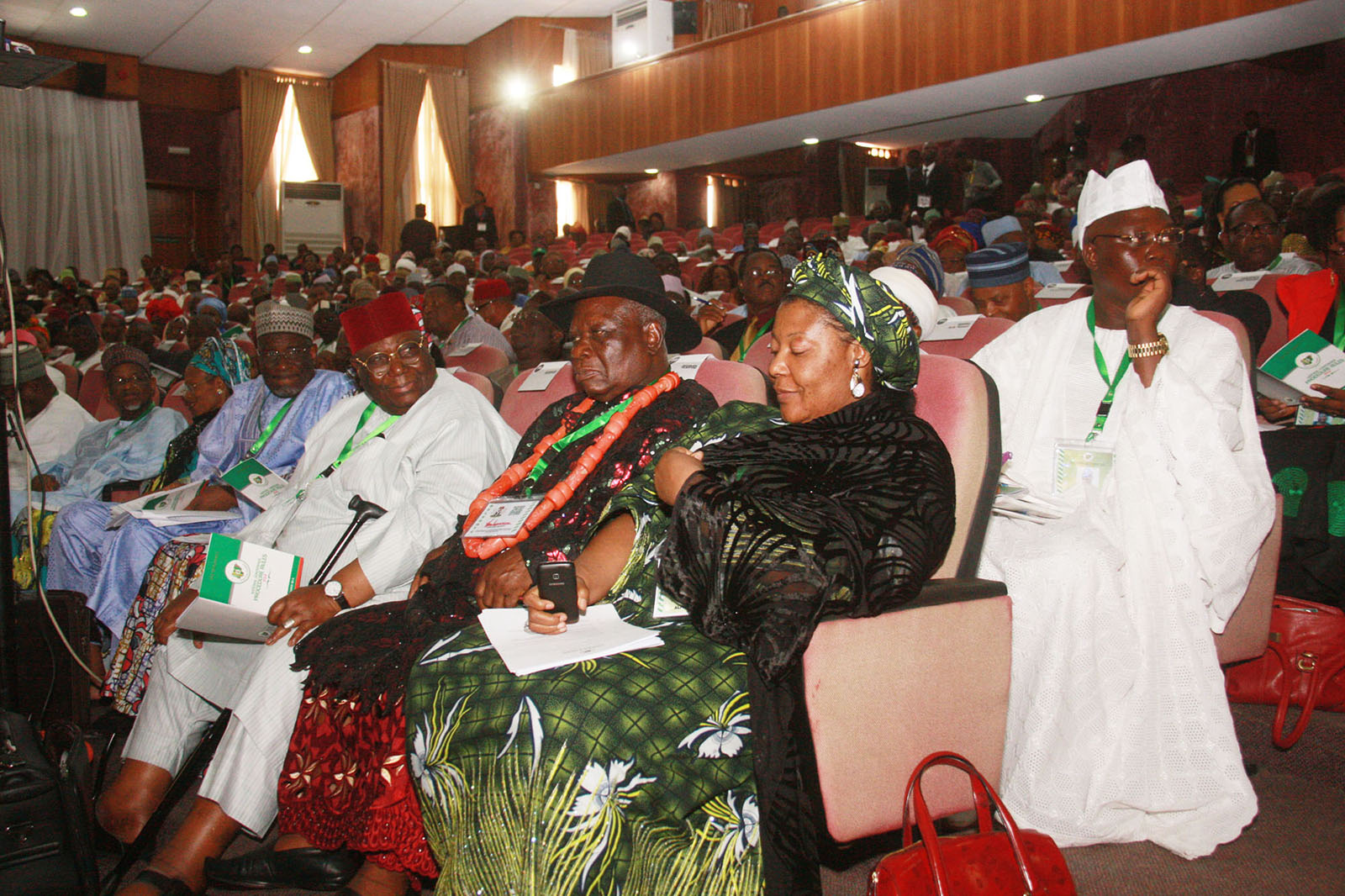After three weeks of intensive committee work, the plenary session of the national conference will commence tomorrow in Abuja with a detailed examination of reports of the 20 committees assigned various national issues.
While some of the committees had already submitted signed copies of their reports to the conference secretariat before the weekend for distribution to delegates, others were still busy at the weekend with the collation of their final reports.
This was as facts emerged at the weekend on the roles played by vested interests within the South-south as well as the North, South-east, and South-west in dashing the hopes of fruitful negotiation on the issues of resource control and derivation principle. Many of the delegates had dug their heels in and would not shift from the fixed ideas they had come to the conference with.
Submission of committee reports to the conference is in line with Order 12 (d-e) of the National Conference Procedure Rules 2014, which states, “Each committee shall submit to the conference the report of its activities. The report of a committee is the collection of all views expressed showing the consensus on decisions reached by seventy-per cent (70%) of majority of delegates present and voting.”
The modality for consideration of the reports would be made known at the plenary, and it is likely to include a clause-by-clause consideration of the recommendations in each report, with votes taken on items on which there is no clear consensus.
The pattern of voting is contained in Order 11 of the National Conference Procedure Rules 2014. It states, “All decisions of the conference at plenary and committee stage shall be reached by consensus; or in the absence of that, the chairman shall, at his discretion adjourn proceedings to allow for further consultations.
“In the case of failure to reach a resolution on the matter by consensus, it shall be decided by a vote of seventy per cent (70%) majority of delegates present and voting.”
After the item-by-item consideration of the 20 reports, and in line with the Order 13 of the National Conference Procedure Rules 2014, a final report of the conference shall be drawn up and approved by the delegates. The rule requires that the final report of the conference should be signed by the chairman, deputy chairman and the secretary before presentation to the president.
“Should the final report lead to the drafting of issues of law and policy, the conference shall in consultation with the six principal officers of the conference advise the government on the legal framework, legal procedures and options for integrating the decisions and outcomes of the national conference into the constitution and laws of the country.”
Meanwhile, THISDAY at the weekend got hints on how the hopes of an increment in the 13 per cent derivation principle and move towards resource control by the federating units were dashed.
The two cochairmen of the Committee on Devolution of Power, Attah and Coomassie, were determined to defend the interest of their zones, while Coomassie, who is also chairman of the northern socio-political group, Arewa Consultative Forum, had signed a document stating the position of the North that there would be no increase in the derivation principle.
Delegates from the oil-rich Niger Delta had sought an increase in derivation to 50 per cent and a provision to allow the oil producing states to own their oil wealth and pay a specified percentage of the proceeds as tax to the federal government. As the debate progressed, the Niger Delta states found good allies in the South-west and South-east delegates.
South-west delegates like Ayo Adebanjo, Niyi Akintola and Gbagegesin Adedeji supported increased derivation. The South-east delegates led by Prof. ABC Nwosu and the former president of Ohanaeze, Dr. Dozie Ikedife, also spoke in support.
Akintola and Adebanjo argued that the old Western, Eastern and Northern Regions had enjoyed 50 per cent derivation in the First Republic, explaining that the development initiatives by late Obafemi Awolowo and the Ahmadu Bello were facilitated by the control of 50 per cent of the proceeds of the regions’ resources endowments.
But the strong South-west support for resource control and increased derivation was said to have waned when they learnt that the South-west’s demand for a lose confederacy, return to the parliamentary system, and creation of state police was threatened by delegates from the North and South-south.
The South-east delegates were alleged to have reduced their support for the South-south position when it became clear that the eastern quest for an additional state, to bring it to the same level as the other zones, had been made an all-comers affair. The conference received 31 requests for state creation.







